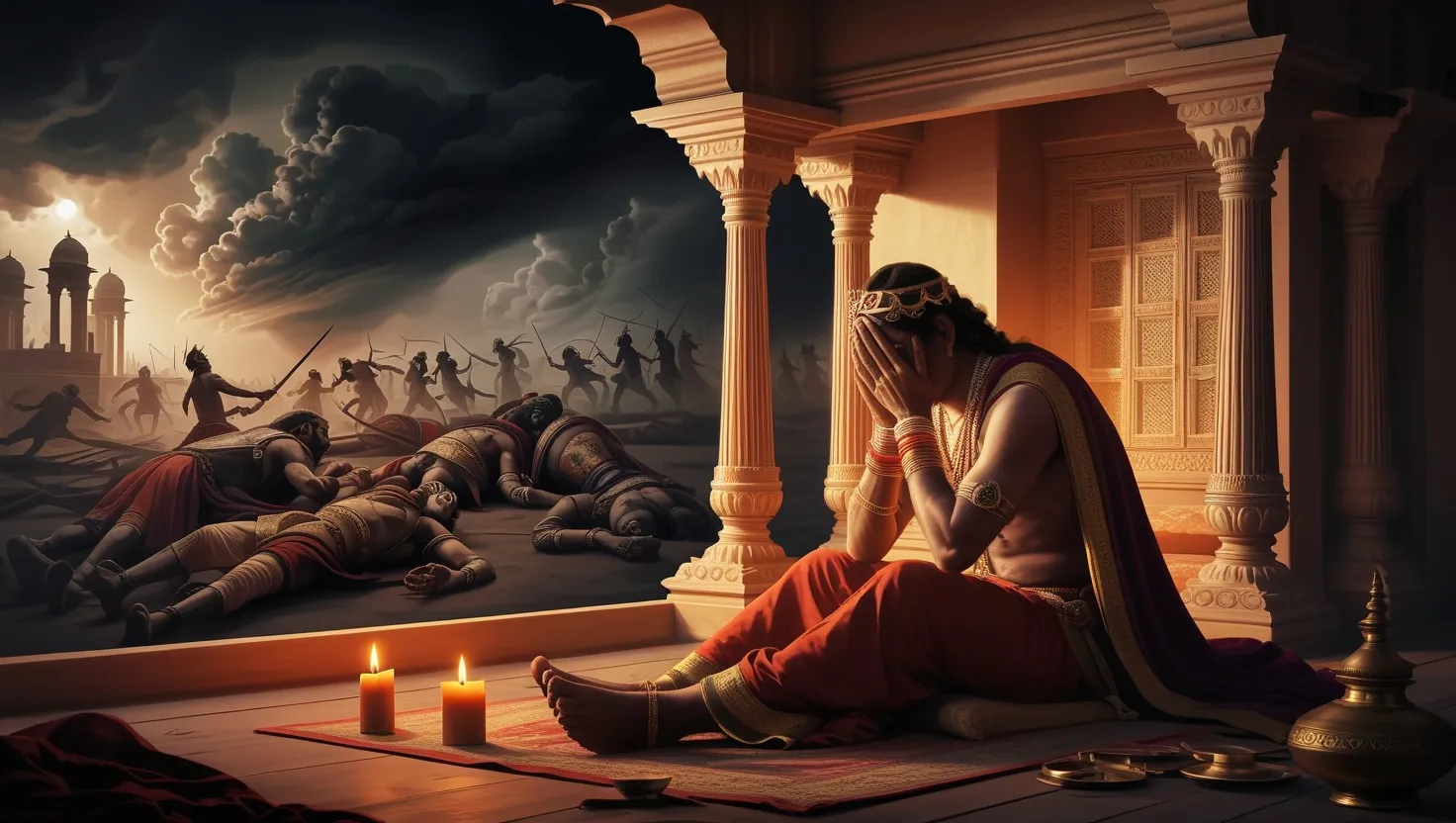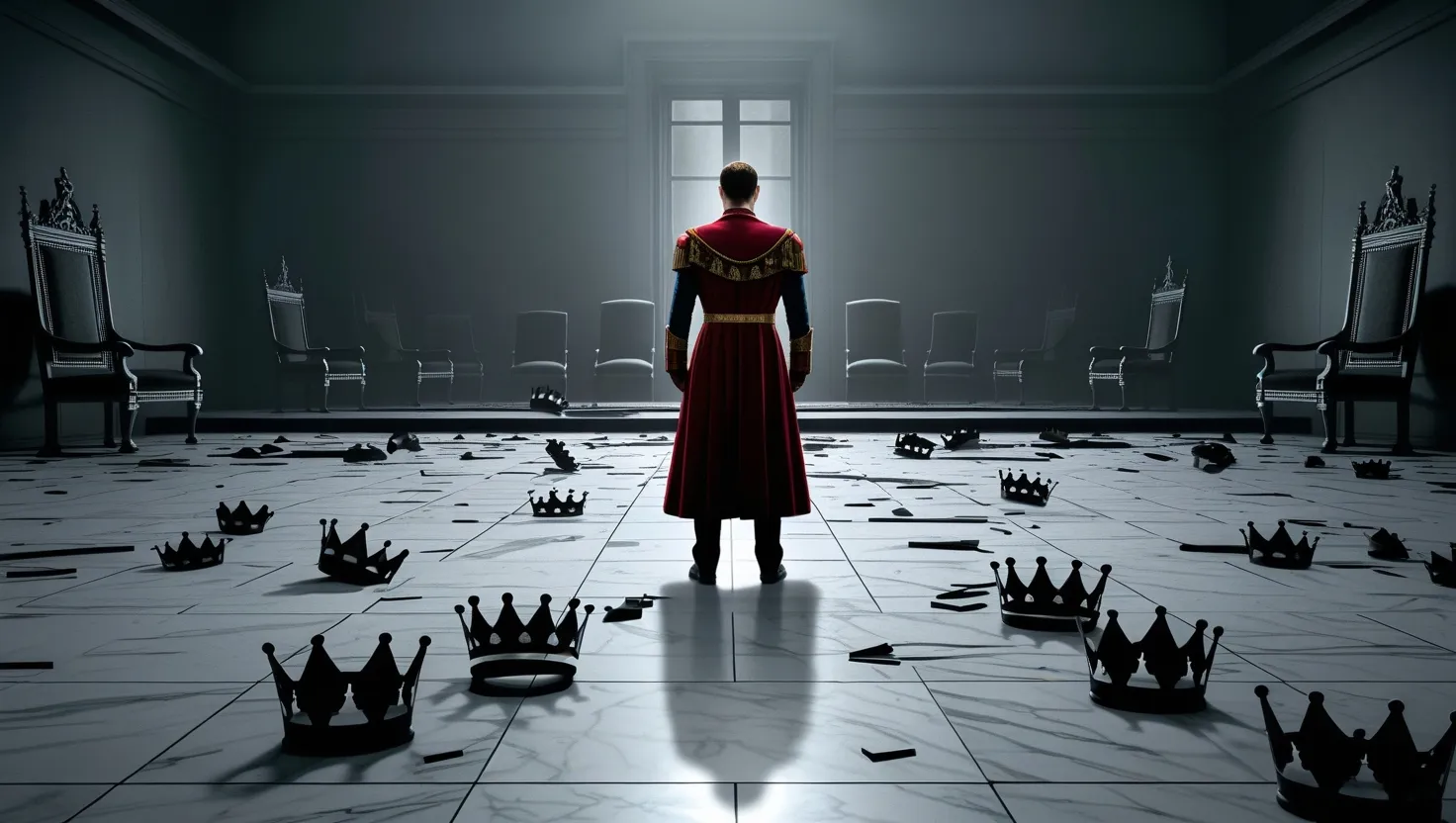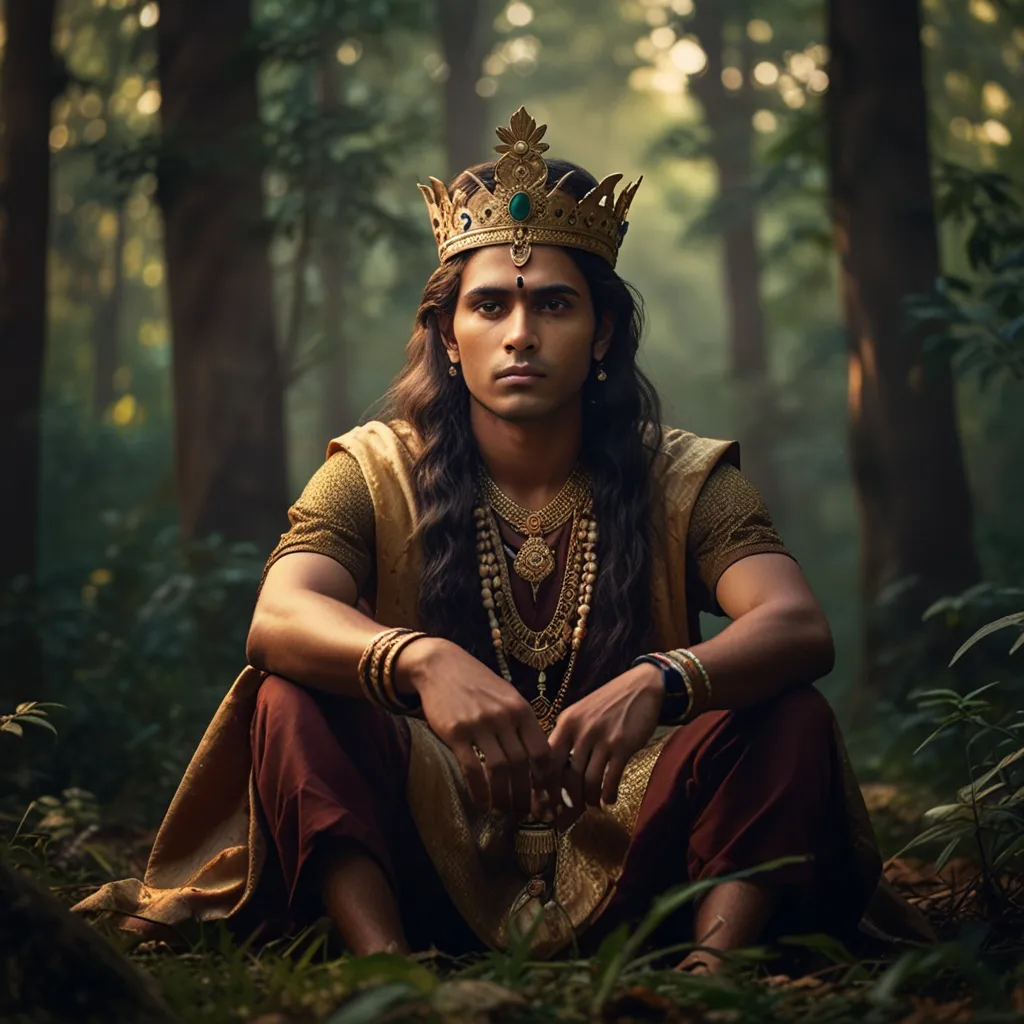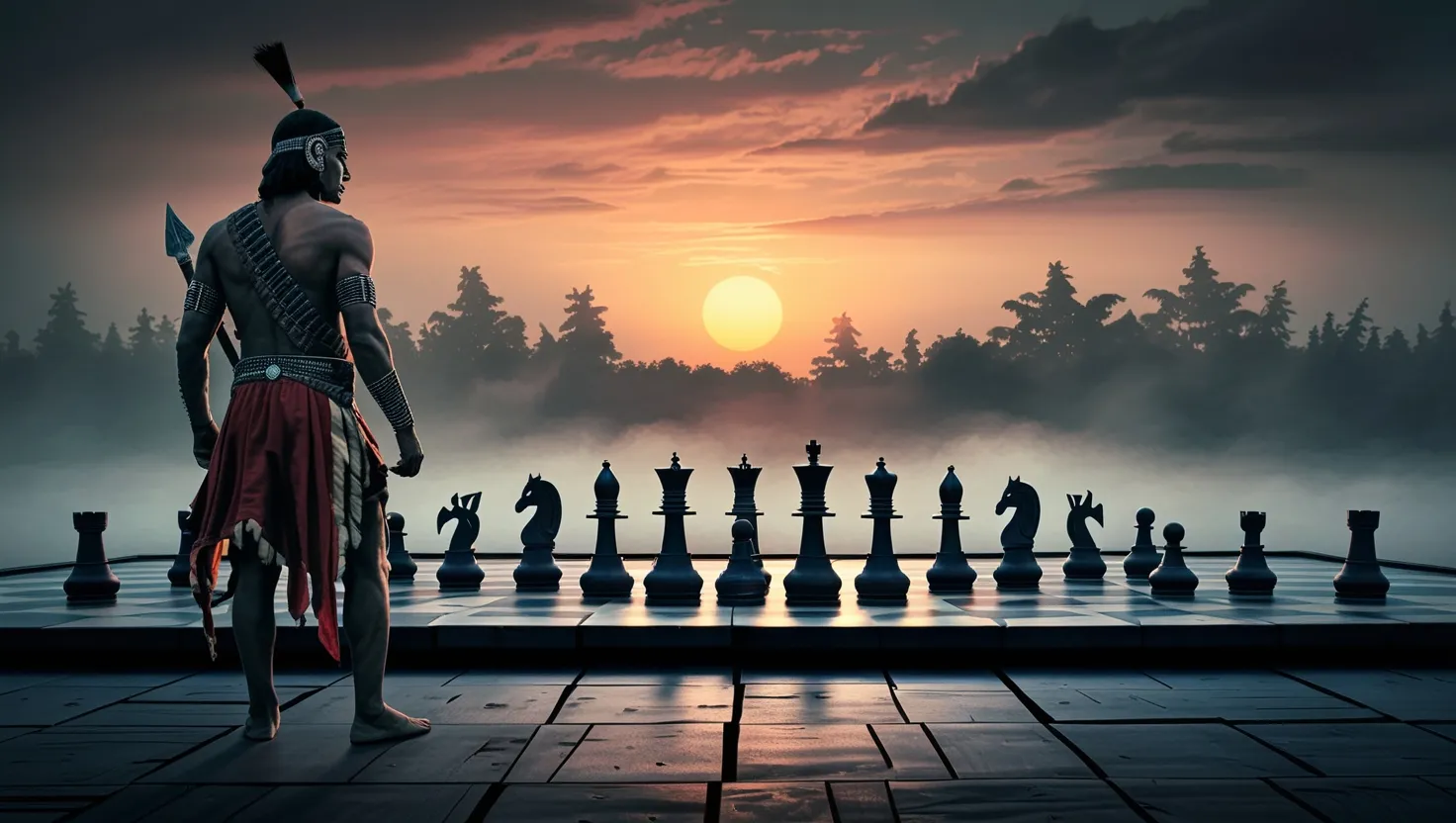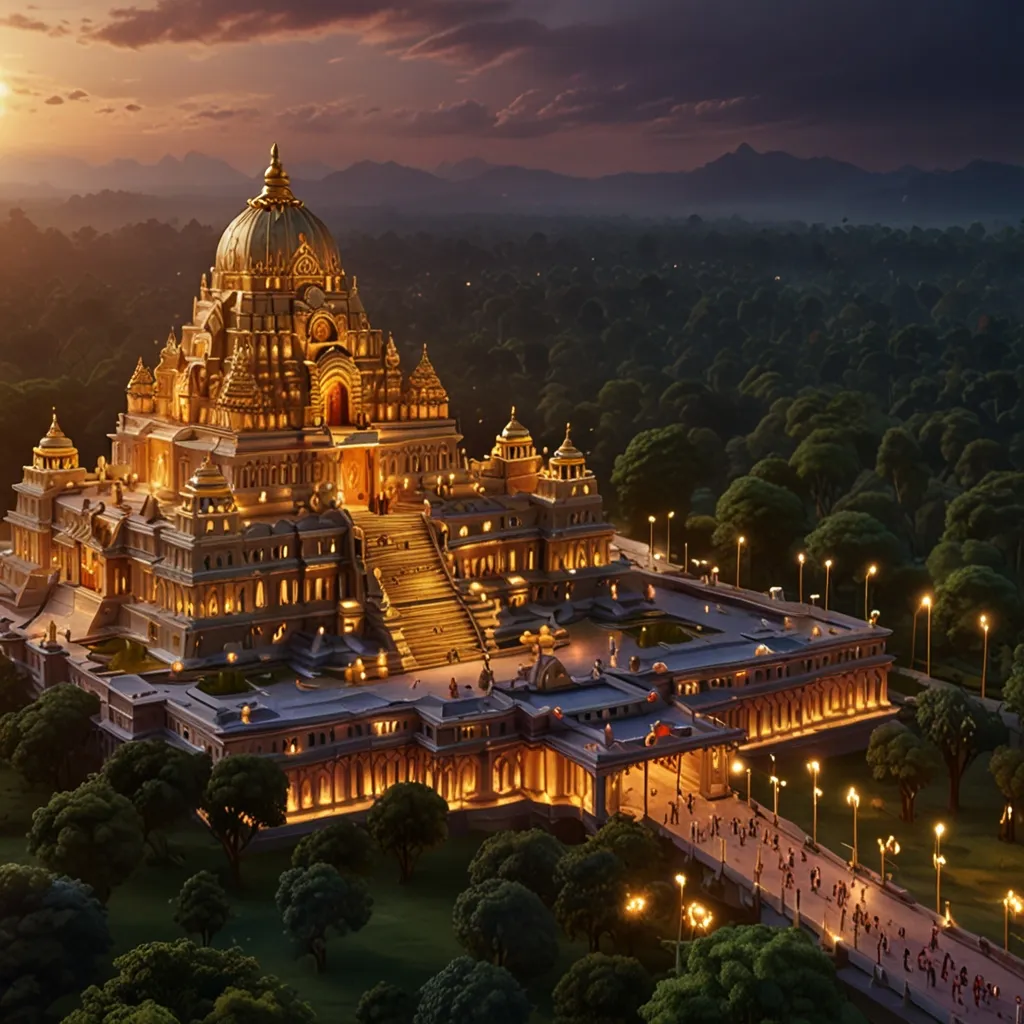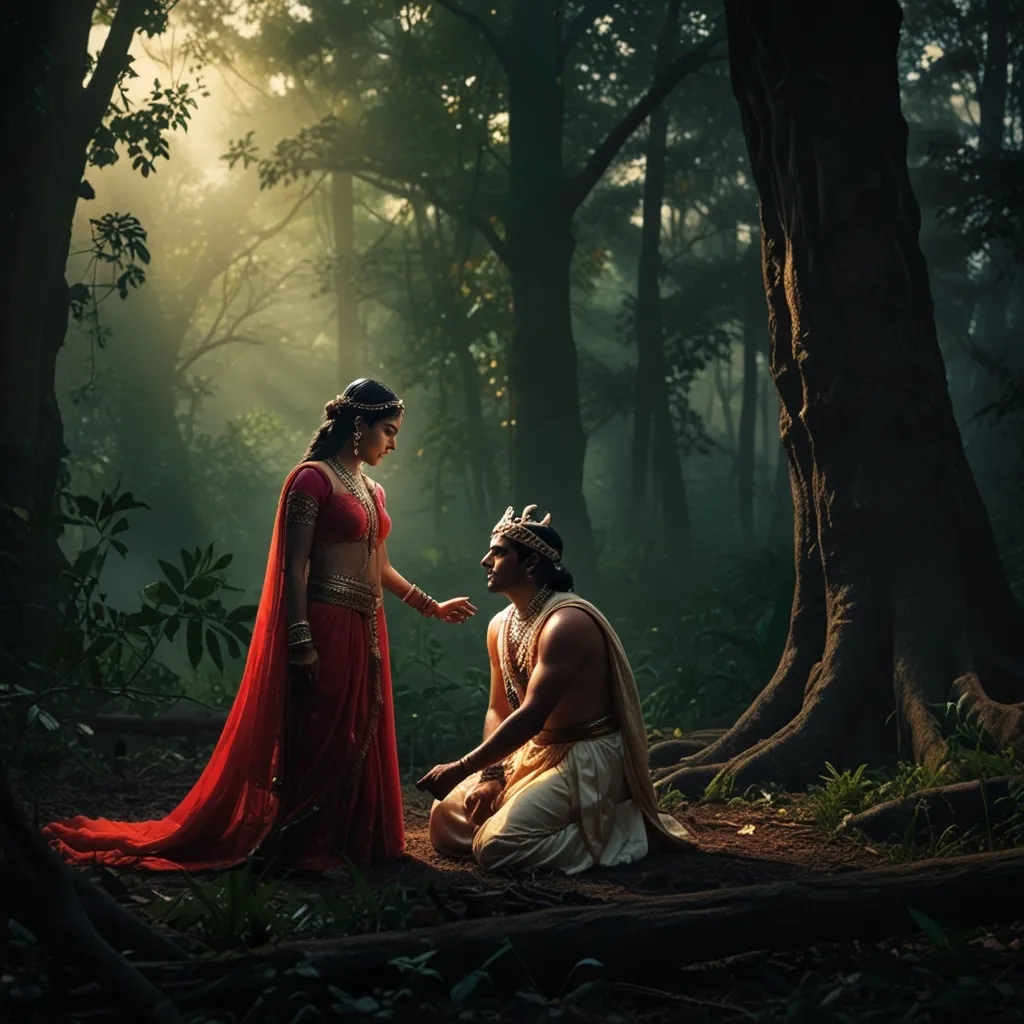I am drawn to the chance to share how dreams and omens, those fleeting whispers of warning, drift through the Mahabharata and shape its path without ever truly steering it. This epic, which everyone knows as a story of war, heroism, and loss, is also a story of missed chances and ignored signals.
It’s strange, isn’t it, how the most profound warnings come not from loud proclamations, but from a father’s troubled sleep, a mother’s anxious heart, and nature itself. Take Dhritarashtra, the blind king. His dreams are vivid, terrifying—headless sons, rivers churning with blood, stars tearing away from the heavens. When I read about how he sits, heart pounding, desperate for meaning, I wonder: have you ever woken from a dream that felt real enough to live in your bones? Yet Dhritarashtra, despite the dread, chooses doubt over action. Was it denial, or was it simply human fear in the face of destiny?
“What’s the use of running from that which pursues from within?” That line, spoken by Vyasa, lingers as a block quote in my mind. The Mahabharata teaches that it’s not just blindness of the eyes, but blindness of the will that keeps us from heeding warnings.
Kunti dreamed too, haunted by visions of her sons feasting with their forebears, shadows stretching over empty plates. Her warning was less spectacular, but more intimate—a mother’s intuition. Unlike Dhritarashtra, she acted. Her plea to Karna, born of dream and dread, was the cry of someone trying to rewrite fate’s script. Did it work? Karna’s choice simply drove the tragedy deeper, but isn’t it remarkable how a single dream can move a person beyond helplessness, if only for a moment?
“If you listen to your fears, you will die never knowing what a great person you might have been.” These words, attributed to Robert H. Schuller, echo how Arjuna approached omens. His mind was filled with images—strange skies, discord in the stars, unsettling quiet. He took these signs as hints, not commands, letting them shape his doubts but not his actions. If duty weren’t so heavy, would Arjuna have walked away? We ask ourselves, in those moments approaching hard decisions, do we let our doubts lead, or silence them for loyalty?
The Mahabharata uses the world itself as messenger. Before battle, animals behave strangely; horses cry, weapons spark, the wind tastes wrong. Vidura, wise and ever watchful, catalogued these phenomena for Dhritarashtra. It’s almost bureaucratic—listing omens instead of emotions. Vidura, the advisor, does what every good friend should: he tells the truth plainly. But truth, delivered on a platter, isn’t always consumed. What stops us from listening to what is obvious?
“Men occasionally stumble over the truth, but most of them pick themselves up and hurry off as if nothing ever happened.” Winston Churchill’s words seem almost written for the Kauravas.
Perhaps the most fascinating twist on omens comes from the way ambition warps perception. Duryodhana is plagued by dreams of ruin—fallen crowns, snapped umbrellas, things kings never wish to see. But Shakuni, the sly uncle, becomes interpreter and architect, making disaster look like triumph. What an incredible mechanism for self-deception! Have you ever wanted something so much that you’d rather twist the signs than face the truth? Duryodhana’s downfall is less about ignorance than willful blindness.
As I consider Abhimanyu, there is a sort of cosmic joke at play. His knowledge of the Chakravyuha, gained before birth, became a double-edged sword. Here we see wisdom arriving unconventionally—a child absorbing battle lessons in the womb. It’s both gift and doom. Abhimanyu’s fate asks us: is knowledge always a benefit, or do we sometimes gain skills that come with unbearable burdens?
Ralph Waldo Emerson once famously said, “Knowledge is knowing that we cannot know.” In the Mahabharata, this rings true, especially when the best understanding comes not from experience but from intuition and premonition.
It’s tempting to think that if only the warnings had been louder—if the dreams were clear, the omens more forceful—disaster could have been spared. Yet, what I see is that the real tragedy is not in the message but in the readiness to receive it. The Mahabharata isn’t just a tale of destiny but of choices: what to heed, what to dismiss, when to act, when to wait.
I often ask, does our world work the same way? Are we ignoring our own omens—anxiety before a meeting, hesitance before a decision, a friend’s warning—because ambition blinds us, or because fear makes us doubt our own judgment?
The epic rises on these small acts of disregard. Omens always arrive before the storm, preparing us, giving us a chance to change or brace ourselves. Are warnings ever truly wasted, or do they serve as reminders that wisdom cannot be forced—it must be chosen?
As the battle looms, the Mahabharata’s heroes stand before destiny with a chorus of ignored warnings echoing behind them. The story asks us, again and again, what would you do with advance notice of trouble? Would you prepare, protest, pause, or push on regardless?
Sigmund Freud once wrote, “Dreams are the royal road to the unconscious.” If only the Mahabharata’s characters had dared to travel that road, to act upon the dangers their dreaming minds conjured up. But maybe it was easier to follow familiar patterns, to let fear be disguised as courage.
All these dreams, omens, signs, and flashes from the unconscious world—what do they mean in the end? Perhaps they are reminders that awareness does not guarantee wisdom. Like Dhritarashtra, we may see disaster in the mind’s eye but choose the comfort of customary choices. Like Kunti, we may act but fail to sway destiny. Like Duryodhana, we may twist truth until it matches desire.
The Mahabharata ultimately teaches us that warnings, however delivered, are invitations to self-reflection. Acting upon them is what separates fate from coincidence. I like to think that by recalling these stories, we’re all a little better prepared to notice the omens in our own lives—not to change what must happen, perhaps, but to understand it, respond to it, and allow caution to walk hand-in-hand with courage.
So I leave you with a question: what omens are you ignoring today? And if you listened, could you change your story?
